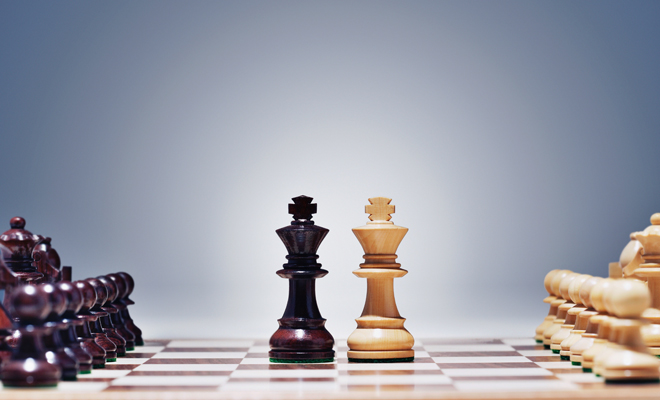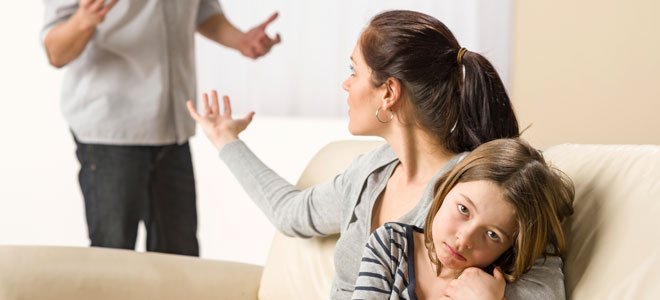Living with a person who suffers from Obsessives very complicated, which is why the most common question is how I can help my partner if they have OCD. It must be very clear that OCD needs psychological treatment and perhaps pharmacological treatment, but you as a couple can also do some things. Do you want to know what is the best way to support your boyfriend/girlfriend with this disorder so that he gets over it as soon as possible? Take note of what we tell you below.

Understanding Obsessive Compulsive Disorder (OCD)
Your partner may be a freak of order or cleanliness, they may have certain extravagant attitudes such as separating food on the plate, or they may suffer from Obsessive Compulsive Disorder. If living together as a couple under normal circumstances is already a high-risk sport, when one of the two suffers from an anxiety disorder, the relationship becomes a true nightmare.
But let’s go in parts. The first thing you can do to help your partner if they have OCD is to try to understand what is wrong with them. What exactly is OCD? It is a characterized by obsessions and intrusive thoughts that lead that person to perform compulsions or acts impulsively, that is, repetitively, to drastically lower the burden of anguish and anxiety they feel.
Thoughts of the type if I don’t repeat this word five times someone is going to die or magical thoughts that are beyond all logic but that lead that person to not step on the joints of the tiles in the street. And what to say about TOC related to excessive cleaning or the. If your partner does not even dare to touch you because you have just come from the street, how do you carry on with that relationship?
Understanding Obsessive Compulsive Disorder is difficult, so you will have to look for all the information possible and do not lose sight at any time that all those obsessions or compulsions do not define your partner, OCD is a diagnosis and your partner acts like this for a high degree of anxiety, not because it is so. In short, do not forget at any time that all those compulsions that interfere so much in your relationship are automatic and involuntary (until you seek treatment) and that your partner is the first person to feel bad for doing them.
How OCD affects a relationship?
Indeed, the person with Obsessive Compulsive Disorder knows that something is wrong, but cannot avoid it. He can’t help but spend more than an hour of his time busy with his compulsions from him, those that make the universe, his universe, keep spinning without it falling apart, lowering anxiety, discomfort and anguish as much as possible. And he remembers that within his universe of him there is also you, that you are his partner of him.
Iain it is the misunderstanding that affects the relationship the most, in the case of OCD we are already talking about palpable and tangible acts that can be annoying and unbearable for the other person. Changing towels and sheets every day is something you should respect but not have to participate in. You don’t have OCD, try to understand your partner and not devalue their problem, but don’t share their compulsions either.
Imagine that your boy/girl is obsessed with pollution. Everyday life is a real hell because everything is full of dangers. Or if you have Hoarding Disorder and most of your house is busy with things. You can’t live in that home, right? And if it is obsessive thoughts about violent events or catastrophes? Fear will mark your daily routines.
It’s up to you to throw in the towel and break that relationship. Nobody is going to judge you for it, since OCD usually destroys the life of the person who suffers from it and everyone around them. But you have the other option, to help or, rather, to support your partner as long as they get treatment as soon as possible.
How to help your partner with OCD?
Here we enter into the need to distinguish. Hobbies, as long as they do not affect the normal functioning of daily life, are tolerable and acceptable in a couple. OCD needs treatment. So the best gesture of support for your partner is to take them by hand to a psychologist who can help them.
Getting involved in your partner’s therapy is another way to help. Knowing what the chosen therapy or treatment to follow consists of and having instructions on what attitudes may or may not harm you. You will not find that in this article or in others that you find on the Internet, it is something that the psychologist who treats your partner in a personalized way should explain to you.
If empathy is necessary in, in the case of a couple with OCD it becomes the only chance of survival. Do not criticize your partner for their compulsions; remember that they are not hobbies that you can avoid. And, above all, do not judge your partner, remember that they have a diagnosis and they will not be cured overnight, it takes time.
Accept his compulsions, accept his obsessions, accept that he has a problem that he is suffering from, but don’t encourage him. You do not need to constantly remind him that he is wrong and that the world is not going to end if he does not wash his hands seven times, but you do not need to imitate his compulsive acts of him either.
Patience will be your most powerful weapon to survive your partner’s OCD. You are also going to suffer the consequences of your diagnosis and, as we tell you, it is not something that you are going to overcome from one day to the next. Do you have enough patience?
It is very important that you do not blame your partner for the inconveniences (and there will be many) that may arise in your daily life due to Obsessive Compulsive Disorder. It is a serious problem that he or she has not chosen, so do not blame him or her for all the problems that he or she is causing.
Listening without judging, listening by asking questions, listening without giving advice, and ultimately, listening empathically, is the best support for a person suffering from OCD. And the same goes for people with anxiety or depression. Empathic listening is a show of support, saying what you have to do can be devastating.
Respect their compulsions until the psychologist recommends that you start progressive exposure therapy. Then you will have a more active role and will need your full support the first time he dares not to do the compulsion or just gradually reduce or change it.
Discussions are allowed and are even advisable in all relationships, but not reproaches. Reproaching a person with OCD for her behavior de Ella will only reaffirm her and obsessions about her.
Provide your partner with positive reinforcement. As you progress through therapy, celebrate your accomplishments and downplay potential missteps. Always point out the positive of what is happening, and he or she will take care of reminding himself of everything that is going wrong.
Remember that your partner has an anxiety problem. You can do activities with him or her that can reduce stress or anxiety in life, such as moderate physical activity, yoga, mindfulness, breathing, massages, relaxation, nature walks, and much more.
And what about you? We ask you this because it is one thing to help your partner who has OCD and quite another to forget about yourself. You must also take care of yourself, try to, reserve your moments alone, with your family and with your friends and let yourself be taken care of by yours. The role of caregiver is very exhausting. And if you don’t want to do it for yourself, do it for your partner, who needs you one hundred percent. And remember: OCD can be overcome, everything will be fine, and your partner (with your help) will go back to being the person they were before suffering from this overwhelming psychological health problem.






